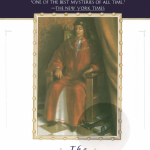Over President’s Day weekend, a friend from college that I hadn’t seen in several years recommended that I try an author named Steven Pressfield. “He writes novels about military history. The detail is amazing, and they are really good.” We have similar tastes, and so I picked up The Virtues of War: A Novel of Alexander the Great; and I’m glad I did.
Before reading this book, I knew a little about Alexander the Great. He was the son of Philip of Macedon, the greatest conqueror the Greek world had known up to that time. The Macedonians were regarded as little better than barbarians by the civilized Greeks—and in our terms, the Greeks were mostly right—but Philip was a genius at using Greek methods of warfare, and of adding his own twists. His first goal was to conquer Greece, and his second to conquer Persia.
When he died, he was succeeded by his son Alexander, who excelled him in almost every way. Alexander completed the conquest of Greece, and then of Persia, and then he headed further east, desiring nothing more than to conquer every people who stood between him and the eastern ocean. Eventually he couldn’t drive his troops any further, gave up, returned to Greece, engaged in a little desultory conquest among the Arabs, and died of illness.
The book is Alexander’s story, as he relates it to one of his pages while on campaign in India, and it is fascinating. We see Alexander’s virtues, some of which are vices, and his vices, some of which are virtues. We see his (very well documented) skill at moving men and beasts to follow him, his chivalry toward worthy adversaries, and his ruthlessness in conquest, and most especially his skill in planning battles and adjusting to circumstances as the battles progress.
The centerpiece of the book, for me, was a pair of reflections on the nature of kingship. For Alexander, as Philip before him, the King was an almost priestly figure, standing between his people and the gods, making sacrifices at the appointed times. After that, it was his job to serve his people by leading them in conquest, to their enrichment. The booty from Alexander’s conquests was phenomenal, but he held it lightly, using it for only two purposes: to reward his followers, and for further conquest. In the book Alexander goes on about this at some length.
Alexander is temporarily stymied at a river in India, and has a parley with the Indian ruler whose lands are on the other side; and from Porus, he learns another way to think about kingship.
Porus has been sitting across from me, on a couch by himself, beneath the brightly colored canopy that shades both us and the company. He has just finished inviting me to tour his lands with him; it will be illuminating for me, he says, to see with my own eyes how well ordered is his kingdom, how productive the land, how happy the people, and how much they love him. He rises and crosses to the couch on which I sit, taking the place directly beside me. It is a disarming gesture, an act not just of affability but of affection.
“Stay with me,” he proposes of a sudden, gesturing to the far shore, beyond which extend his lands and kingdom. “I give you the hand of my daughter and declare you my own heir and successor. You shall be my son and inherit my kingdom”— he indicates his two splendid-looking scions—“ even before these children of my own flesh.”
I am struck dumb at such munificence.
Porus flashes his dazzling smile. “Study with me,” he continues, setting a hand warmly upon my knee. “I will teach you how to be a king.”
Alexander is enraged. He is, after all, already a king, and understands kingship very well, so he thinks. But he controls himself, with difficulty, and asks Porus what he means. Discussion and hard words ensue, and Porus ends with this:
“I said you are no king, Alexander, and I repeat it. You do not rule the lands you have conquered. Neither Persia, nor Egypt, nor Greece from whence you came, which hates you and would eat you raw if she could. What offices have you established to promote your people’s weal? None! You have set in power only those same dynasts who oppressed the populace before, and by the same means, while you and your army pass on, like a ship that is master only of that quadrant of ocean upon which it sails, and no more. You command not even here in your own camp, which boils over with sedition and unrest. Yes, I know! Nothing happens in my country that is not reported to me, not even within your own tent.”
And all of this is true. And it’s only later that we learn the true reason for Alexander’s rage: he knows, though he will not admit it, that Porus is right. Later in the book he tells of his conquest of Persia, and his dismay at the corruption of that ancient empire, in which every man and woman preys on those below and licks the boots of those above. He comes to love Persia, and wishes for it to be governed well, but the established order withstands his efforts. Truly, he is a conqueror but no king; he understands war but not rule. And when Porus, later in the campaign, calls his attention to it he cannot stand it.
It is a lack Alexander never makes good. When he dies, his empire falls apart; though two of the resulting realms, under Seleucus and Ptolemy, prove lasting.
All in all, this is a fascinating, well-researched, and eminently readable tale, and I enjoyed it thoroughly. Highly recommended.











